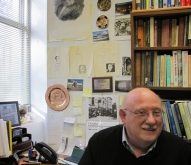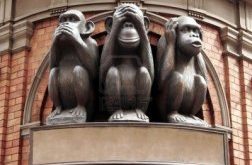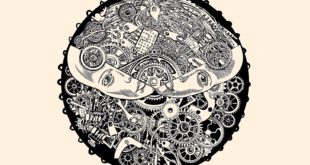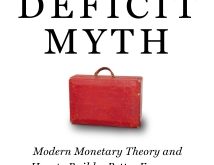Fred Lee on ‘non-knowledge’ mainstream economics The methodological underpinning of neoclassical microeconomics is open to criticisms. The methodological approach of neoclassical economics is based on a pre-vision of supply and demand and/or a Walrasian general equilibrium all combined with scarcity and constrained maximization. Accepting this vision as a matter of faith, neoclassical economists construct axiomatic-based arguments via a deductivist...
Read More »Remembrances of an Indian development economist
The statistical assistants at ISI were literally called ‘computers’ (I was a bit taken aback when on the first day a man came to see me and said “I am your computer, sir”). One day when I was chatting with this human ‘computer’, he said some years back he had worked with a foreign professor who was rather short-tempered and used to scream at him for the slightest delay or lapse. (It so happened that I knew this professor). I said he should have protested if the professor was unnecessarily...
Read More »Models and the need to validate assumptions
Models and the need to validate assumptions Piketty argues that the higher income share of wealth-owners is due to an increase in the capital-output ratio resulting from a high rate of capital accumulation. The evidence suggests just the contrary. The capital-output ratio, as conventionally measured has either fallen or been constant in recent decades. The apparent increase in the capital-output ratio identified by Piketty is a valuation effect reflecting a...
Read More »2022 Godley – Tobin Memorial Lecture: Professor Paul Krugman, “The enduring relevance of Tobinomics”
The Review of Keynesian Economics is pleased to announce that Professor Paul Krugman will give the 2022 Godley – Tobin Lecture. Professor Krugman is Distinguished Professor of Economics at the Graduate Center of the City University of New York. He has also taught at MIT, Princeton University, and Yale University. Like James Tobin, Professor Krugman […]
Read More »Mainstream economics in denial
Mainstream economics in denial We’d gathered at Downing College, Cambridge, to discuss the economic crisis, although the quotidian misery of that topic seemed a world away from the honeyed quads and endowment plush of this place. Equally incongruous were the speakers. The Cambridge economist Victoria Bateman looked as if saturated fat wouldn’t melt in her mouth, yet demolished her colleagues. They’d been stupidly cocky before the crash – remember the 2003...
Read More »Cambridge economics has died out
Cambridge economics has died out A couple of weeks ago yours truly had a review of Diane Coyle’s Cogs and Monsters in WEA Commentaires. As I wrote, there’s a lot in the book to like, but unfortunately also some things very hard to swallow. James Galbraith seems to argue along the same lines in his Project Syndicate review: Coyle subscribes to the grand illusion that price adjustment is the economy’s prime mover. But as the Cambridge Keynesian economist...
Read More »Does buying organic save lives?
Pesticides are linked to negative health outcomes, but a causal relationship is difficult to establish due to nonrandom pesticide exposure. I use a peculiar ecological phenomenon, the mass emergence of cicadas in 13 and 17-year cycles across the eastern half of the US, to estimate the short and long-term impacts of pesticides. With a triple-difference setup that leverages the fact that cicadas only damage tree crops and not agricultural row crops, I show that insecticide use increases with...
Read More »PhD applicants: Writing your statement of purpose
I’ve read a lot of personal statements for PhD applications. I sat on admissions at UChicago, Columbia, and Yale, mostly in economics, political science, and public policy. Here’s the advice I’ve given my own students and research assistants to craft their statements. I give it because, sadly, I don’t find most statements helpful. This means they are not helping you, the applicant. As with all my advice posts, it’s important that students outside elite colleges get this information, so here...
Read More »Federal Reserve Insider Dealing? R.I.P. Central Bank Independence
Federal Reserve Vice-Chair Richard Clarida has shot himself in the foot with what appears to be insider trading. That comes on the heels of prior concerns about inappropriate trading by regional Federal Reserve Bank Presidents Robert Kaplan and Eric Rosengren. Albeit unintentionally, the good news is these indiscretions may have done working families a favor […]
Read More »Does MMT have an inflationary bias?
Does MMT have an inflationary bias? A view yours truly often encounters when debating MMT is that there is an inflationary bias in MMT and that its framework ignores expectations. It is extremely difficult to recognize that description. Given its roots in the writings of Keynes, Lerner, and Minsky, it is — to say the least — rather amazing to attribute that view to MMT. Let me just quote one source to show how ill-founded the critique is on this issue: MMT...
Read More » Heterodox
Heterodox





